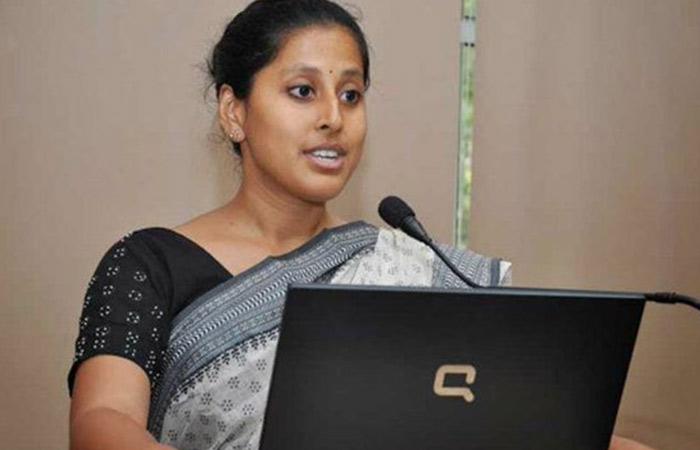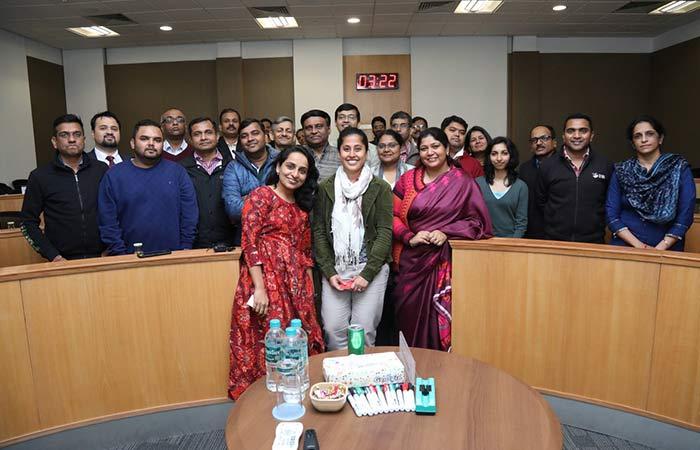The intensity of competition that we face in life is at its peak today. Students struggle to find time to play and get involved in extracurricular activities because their preparation for ten different college entrance examinations start from as early as primary school. We’re all in the race like horses with blinkers on. Nobody cares about what’s happening around and the ultimate goal is to keep moving forward in the race. Humanity is lost in such a society that doesn’t have time to help others as we progress. Fortunately, there are a few people who stand out in this “ultra-focused” society. Harvard grad Rwitwika Bhattacharya is one among them and we’re glad that our country’s youth has gems like her who would choose a meaningful life over an extremely well-paid career.
In 2012, Rwitwika Bhattacharya bid her goodbyes to the World Bank, making a clear choice between corporate consulting and starting her public venture in India. The postgraduate from the prestigious Harvard Kennedy School set up the Swaniti Initiative, an enterprise that aimed at delivering social service to the public by working closely with their elected representatives. Want to know more about Rwitwika and her initiative? Read on.
Problems She Focused On

Source: Twitter
Rwitwika’s initiative focused on the discrepancies in implementing government laws and policies thereby benefiting over 50 lakh people in 17 states. The data-driven program mobilized around 100 crores of underutilized government funds over the past few years. An initiative like Swaniti can make a huge change in India because it’s due to the failure of proper utilization of public funds that our country is sinking down in corruption.
Let’s explain this with an example. The Building and Other Construction Workers (Regulation of Employment and Conditions of Service) Act, 1996, and the BOCW Welfare Cess Act, 1996 are two acts that promise construction workers aid. The benefits include health insurance, life insurance, and basic housing to the workers. However, according to the records, only 35% of the funds allotted have been utilized in the past 22 years. This means that around Rs 28,000 crore is just lying there unused (at least not by the public). Poor data management and tracking is the main reason why such instances occur.
For large scale and elite government programs like Beti Bachao, Beti Padhao or Swachh Bharat, these tracks are usually managed by a district magistrate. However, there are hundreds of other government programs that do not get this kind of tracking and management. By streamlining the data associated with these schemes, we can make sure that the funds are being utilized in the right way. And in many parts of our country, the public offices are understaffed and don’t have a proper support system to collect and maintain huge chunks of data. This is what has to be changed. Keeping up with the data and tracking it, when it comes to government schemes, funds, and implementation will help in uprooting corruption.
“So if the very fundamentals of how much money is coming in, where it’s going, how much is being spent, etc. isn’t closely tracked on the ground at say the village level, then preventing corruption becomes impossible. Having worked with state and district administrations, this is something we have noticed,” says Rwitwika in an interview with an online portal.
Finding Solutions

Source: Twitter
Rwitwika couldn’t have put her plan to action without the help of politicians. “My experience at the World Bank was great, but I wanted to do more. My father, Ranjan Bhattacharya, was active in politics, so I grew up seeing and meeting MPs. Thus, it made sense to reach out to them. I wanted to see how they were doing, what development in their constituency looked like,” she said. Even though the MPs do not work on implementing schemes to the ground level, their help made it easier for Swaniti to connect to the communities.
The first step is to find data about the community if it is available at a district level. In case the data isn’t available, it is collected from scratch. This data includes information regarding the demography of the community, the major issues faced by them, and what the government is doing to help them. In Uttarakhand, Rwitwika’s initiative found that a huge number of men were unemployed and seeking jobs outside the state. When the situation was studied at a closer level, it was found that there were State-funded programs to build public infrastructure like roads and parks within the community. Also, there was around 70 lakhs that was alotted for these programs that wasn’t used. So, Swaniti took the initiative of deploying these funds and getting youth jobs.
Earlier this year, Rwitwika’s initiative launched “Jaano India,” an online platform to collect data regarding district constituencies and their MPs. This platform helps the citizen and the public servants to track the progress of their community at the district level.
We’re so glad that people like Rwitwika who empower others using their own power are among us. Did this story inspire you? If given a chance, what change would you like to bring into the system? Let us know in the comments below.
The post Harvard Grad Uses Data To Bring Govt Help To 50 Lakh Indians! appeared first on STYLECRAZE.
from STYLECRAZE https://ift.tt/2Ksyb0C
via IFTTT

No comments:
Post a Comment